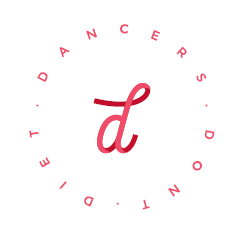What to do with chocolates this Easter long weekend
Easter's just around the corner and, oh, I see egg- and bunny-shaped everything everywhere!That means it's time for easter eggs. Like, chocolate easter eggs. You're probably starting to collect a few already.
And maybe you're also starting to worry a little...
"what do I do if I eat all these chocolate and can't burn it off?"
So this post is for you if you need some guidance on how to deal with the chocolates this long weekend.
1. Chocolate isn't a bad food
Morally speaking, chocolate isn't a "bad" food.Nutritionally speaking, veggies, for example, can be higher in certain vitamins and minerals and fibre than chocolate, but morally speaking, veggies and chocolate are of equal value.
This concept of not moralising food is fundamental to kind and compassionate eating because when you label something as "bad" and eat them you will automatically develop a sense of inferiority... when in fact there is NOTHING wrong with enjoying chocolate!
2. This is a great time to practice mindful eating
Mindful eating is about bringing full awareness to the present moment of eating.That involves the what, how, and why of eating.In this case, the "what" is chocolate.
The "how" can vary
For example, are you sitting at a quiet, comfortable table focusing on the chocolate on the plate? How different is this experience from eating from a bag of many chocolates while watching TV scrolling through facebook and instagram on your phone?
And then there's the "why"
Are you eating because you love chocolate and enjoy every taste of it? Or are you eating "because it's Easter" or "because it's there"? Or could it be that there's some frustration, anger, hopelessness, or conflict that makes you want to reach for chocolate for comfort?
No single one of the reasons mentioned are right nor wrong; but it's the understanding and acknowledging of the "why" that allows you to start the awareness-building so that you can develop strategies that are more helpful.
3. You don't have to eat all of them
The "clean your plate club" may have taught you to finish everything that's provided.But you don't have to.If you are staying true to your physical cues of hunger and fullness, you will more often than not feel satisfied after a few chocolates. Eating beyond what you're comfortable of appreciating is like treating your body like a cleaning machine... and that's not nice is it?The chocolates will still be there for you to enjoy later in the day, or the next day, or even a few weeks later.
4. Listen to your hunger / fullness cues
You're away from your usual school/work schedule, which means you get a bit more flexibility on when to have your meals.Before you start eating, you could ask yourself, "how hungry am I now?" and "how much would I want to eat to be comfortably full?"Using a scale of 1-10 could be helpful, just like the one below.Doing this for meals over a few days can help you see a pattern in your eating habits. For example, are there times where you often eat past the point of comfortable fullness? Or are there times where you neglect meals and make yourself ravenous? If you do find some patterns, what would you want to do next to feel comfortable before/after meals?
Wishing you a lovely Easter!
Fumi

